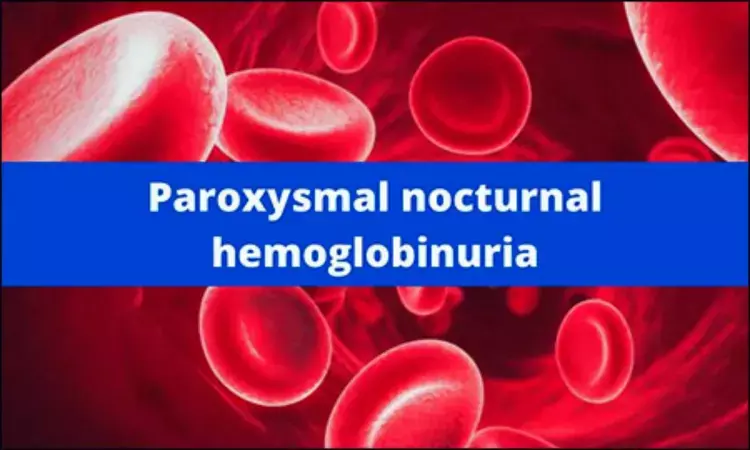- Home
- Medical news & Guidelines
- Anesthesiology
- Cardiology and CTVS
- Critical Care
- Dentistry
- Dermatology
- Diabetes and Endocrinology
- ENT
- Gastroenterology
- Medicine
- Nephrology
- Neurology
- Obstretics-Gynaecology
- Oncology
- Ophthalmology
- Orthopaedics
- Pediatrics-Neonatology
- Psychiatry
- Pulmonology
- Radiology
- Surgery
- Urology
- Laboratory Medicine
- Diet
- Nursing
- Paramedical
- Physiotherapy
- Health news
- Fact Check
- Bone Health Fact Check
- Brain Health Fact Check
- Cancer Related Fact Check
- Child Care Fact Check
- Dental and oral health fact check
- Diabetes and metabolic health fact check
- Diet and Nutrition Fact Check
- Eye and ENT Care Fact Check
- Fitness fact check
- Gut health fact check
- Heart health fact check
- Kidney health fact check
- Medical education fact check
- Men's health fact check
- Respiratory fact check
- Skin and hair care fact check
- Vaccine and Immunization fact check
- Women's health fact check
- AYUSH
- State News
- Andaman and Nicobar Islands
- Andhra Pradesh
- Arunachal Pradesh
- Assam
- Bihar
- Chandigarh
- Chattisgarh
- Dadra and Nagar Haveli
- Daman and Diu
- Delhi
- Goa
- Gujarat
- Haryana
- Himachal Pradesh
- Jammu & Kashmir
- Jharkhand
- Karnataka
- Kerala
- Ladakh
- Lakshadweep
- Madhya Pradesh
- Maharashtra
- Manipur
- Meghalaya
- Mizoram
- Nagaland
- Odisha
- Puducherry
- Punjab
- Rajasthan
- Sikkim
- Tamil Nadu
- Telangana
- Tripura
- Uttar Pradesh
- Uttrakhand
- West Bengal
- Medical Education
- Industry
Danicopan therapy with eculizumab or ravulizumab may reduce breakthrough hemolysis events in PNH patients: Study

Researchers have discovered that with the dual inhibition of C5 and factor D, patients with paroxysmal nocturnal hemoglobinuria (PNH) develop fewer breakthrough hemolysis (BTH) events. Findings from both the ALPHA and PEGASUS trials support treatment strategies on efficacy and safety, with additional danicopan use with ravulizumab or eculizumab showing a rare incidence of mild-to-moderate BTH. A recent study was conducted by Hubert S. and colleagues which was presented at the American Society of Hematology annual meeting.
PNH is an extremely rare blood disorder caused by intravascular hemolysis. If left unchecked, significant morbidity and mortality results from this process. Standard treatments such as the C5 inhibitor ravulizumab are targeted at controlling intravascular hemolysis, but in some patients, clinically significant extravascular hemolysis (csEVH) persists. An oral factor D inhibitor targeting the alternative complement pathway, such as danicopan, can be added for csEVH management. The ALPHA trial investigated danicopan's effectiveness when combined with C5 inhibitors in PNH patients with csEVH, while the PEGASUS trial evaluated pegcetacoplan, a proximal complement C3 inhibitor, as monotherapy for PNH management.
Data from the ALPHA and PEGASUS trials were analyzed to assess BTH events, focusing on hemoglobin (Hb), lactate dehydrogenase (LDH) levels, and treatment actions. ALPHA included patients receiving stable doses of ravulizumab or eculizumab with csEVH (Hb ≤ 9.5 g/dL). PEGASUS recruited patients on eculizumab with Hb < 10.5 g/dL. ALPHA lacked a protocol-defined BTH definition, while PEGASUS defined BTH as new or worsening symptoms with LDH ≥ 2× the upper limit of normal (ULN).
Key Results
• ALPHA Trial (Danicopan Add-On Therapy)
• Over 2.5 years, 5 of 84 patients (6.0%) experienced ≥1 BTH event, with 7 events reported.
• Exposure-adjusted BTH rate was 6.0 per 100 patient-years (PY).
• Most events (85.7%) were mild or moderate, with Hb levels between 7.4–9.2 g/dL and LDH ≤ 2.2× ULN.
• Severe BTH was reported in only one case (Hb 7.3 g/dL; LDH ≤ 2× ULN).
• No transfusions, dose modifications, or treatment withdrawals were needed.
PEGASUS Trial (Pegcetacoplan Monotherapy)
• During 48 weeks, 19 of 80 patients (23.8%) had ≥1 BTH event, and 26 events were recorded.
• Exposure-adjusted BTH rate was 33.5 per 100 PY.
• Events were moderate (14 events) or severe (12 events), with LDH levels reaching 18.3× ULN.
• Hb levels dropped to <6.5 g/dL in five events.
• 11 patients (57.8%) required transfusions, 4 (21.1%) received eculizumab rescue, and 8 (42.1%) discontinued pegcetacoplan.
The ALPHA trial showed a highly reduced incidence and severity of BTH events compared to PEGASUS. The use of Danicopan as an adjunct had fewer and less serious BTH cases that remained self-managed without intervention, thereby establishing the effectiveness of dual inhibition in enhancing treatment outcomes in PNH patients. In contrast, pegcetacoplan monotherapy increases the risk of severe events of BTH, often requiring rescue strategies such as transfusions as well as discontinuation.
Hemolysis in PNH is dangerous, but dual inhibition of C5 and factor D with add-on danicopan therapy is a safe and effective strategy. The findings from the ALPHA trial underscore low BTH rates, mostly mild-to-moderate severity, and no treatment discontinuation or transfusion requirements. These results support dual inhibition as a viable approach for improving disease control and outcomes in patients with PNH.
Reference:
Schrezenmeier, H., Mahdi, M., Gasteyger, C., & De Coster, C. (2024). Breakthrough hemolysis events in patients with paroxysmal nocturnal hemoglobinuria: Data from danicopan and pegcetacoplan trials. Blood, 144(Supplement 1), 2694–2694.https://doi.org/10.1182/blood-2024-203195
Dr Riya Dave has completed dentistry from Gujarat University in 2022. She is a dentist and accomplished medical and scientific writer known for her commitment to bridging the gap between clinical expertise and accessible healthcare information. She has been actively involved in writing blogs related to health and wellness.
Dr Kamal Kant Kohli-MBBS, DTCD- a chest specialist with more than 30 years of practice and a flair for writing clinical articles, Dr Kamal Kant Kohli joined Medical Dialogues as a Chief Editor of Medical News. Besides writing articles, as an editor, he proofreads and verifies all the medical content published on Medical Dialogues including those coming from journals, studies,medical conferences,guidelines etc. Email: drkohli@medicaldialogues.in. Contact no. 011-43720751


